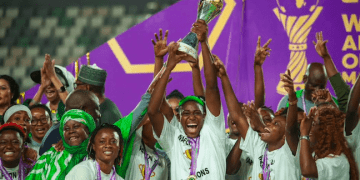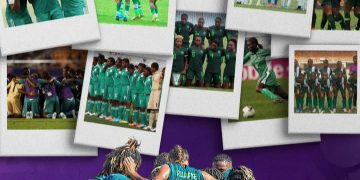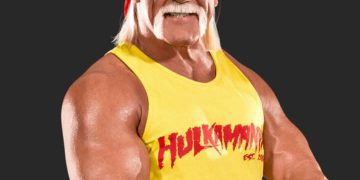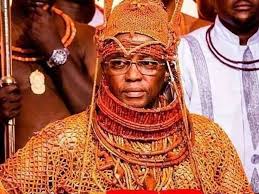By Nwankwo T. Nwaezeigwe
The Igbo say, when someone points one finger at another person, the rest of his fingers point at him at the same time. This anecdote is directed at my Southeast Igbo kinsmen who constitute the bulk of anti-Oba Bini or anti-Edo movement among Igbanke people. A popular adage among my Igbuzo people says, “Ima na-ala nne na eshigbu nwa.” You can’t be making love with a mother and suffocating her child at the same time.
As an opinion leader among the Igbo as an ethnic nation, I have repeatedly cautioned my Southeast kinsmen, both scholars and activists alike to thread with caution in their Igbo expansionist syndrome among Anioma people. The reason is that as a professional historian, like a palm-wine tapper, most of what I know most of them neither know nor understand. History is a discipline of two-edged sword which can cut both ways. My Igbuzo adage says, “Abochaba akwa agadi nwanyi, abochabuta ife ozo.” If you continue to probe into an old woman’s cloth, you will definitely discover something which might not be pleasant.
Unfortunately this has often fallen on deaf ears coming with repeated multiple insults and vile accusations of one being an enemy to his own people. In fact, this is one syndrome of arrogance and domination driven by shortsightedness and rotten ignorance of history among the Igbo that has often pitched other ethnic groups in Nigeria against them.
Today the Igbo as an ethnic group are facing serious identity crisis as a result of this vile syndrome of subjective arrogance and domineering mentality. The Ikwerre people of Rivers State who are ethnographically Igbo by definition are out rightly denying their Igbo identity because of this same vile syndrome; and these shortsighted Igbo expansionist idiots see nothing wrong with such. If you cannot keep the Igbo of the defunct Eastern Region of Nigeria together, is it then by scavenging for Igbo ethnic identity in Edo and Delta States that the Igbo will cultivate the desired ethnic unity?
The other time it was the fugitive Nnamdi Kanu drawing a fugitive map of his fugitive IPOB Biafra, in which he included not only Anioma people of Delta State, but the entire Edo and Delta States. The other time again it was Senator Alhaji Ned Nwoko unilaterally initiating the dumping of Anioma people into the Southeast geopolitical zone without consulting the people he claims to represent. Is that how Igbo ethnic unity in the context of the present precipitous Nigerian nation should be constructed?
Instead of striving to construct enduring ethnic bridges in line with the mission of some of us, some very stupid Southeast Igbo political scavengers with corrupted ideological mindsets are busy creating unwarranted ethnic gulfs between their people and those ethnic groups they most desired for their emancipation in today’s Nigeria. Anioma people cannot and will never be part of this infantile political egotism.
Furthermore, let me state for the umpteenth time that the current conflict between some IPOB-sponsored disgruntled elements of Igbanke community and the revered Oba of Benin Kingdom, His Royal Majesty Omo N’Oba N’Edo Uku Akpolokpolo, Ewuare II, is not the concern of Anioma people and will never be the reason for any rift between the Oba and Anioma people. Between Anioma people and their Edo neighbors, it has remained millennia of mutual cross-ethnic fusion and fission. This cannot be redefined by a small renegade group from Igbanke under the financial inducement of fugitive IPOB elements.
The Oba of Benin Kingdom remains to most of us what the British Monarch is to the Commonwealth of Nations today. Those who have never had any ancestral or historical connection with Benin Kingdom cannot emerge from nowhere to attempt to redefine the time-honored and time-tested kinship relationship between Anioma and Edo people.
We acknowledge the powers and right of the Oba of Benin Kingdom, His Royal Majesty, Omo N’Oba N’Edo Uku Akpolokpolo, Ewuare II, to discipline and suspend any traditional ruler under him in the seven Local Government Areas of Edo South Senatorial District that form the core-Benin Kingdom without ethnic bias.
The Benin Kingdom right from time immemorial has remained multiethnic in character with the core-Bini, Igbo, Yoruba, and Ijaw people constituting the present Benin Kingdom. Any attempt therefore to incite ethnic bigotry by any section of Igbanke people supported by their mercenary IPOB agents can only amount to political wild goose chase.
The question most people should ask is, why did these disgruntled Igbanke elements with their IPOB sponsors wait till this moment to drum up Igbanke Igbo ethnic identity? The undeniable truth is that some Enigie (traditional rulers) colluded with the former Governor of Edo State Godwin Obaseki to undermine the traditional authority of the Oba. However, when Governor Monday Okpebholo nullified the anti-Oba policies of his predecessor and, the Oba decided to wield his strong hammer on the renegade Enigie, these disgruntled Igbanke elements felt that the Oba has no right or powers to take such action and subsequently decided to engage in false deconstruction of their history.
Was Igbanke community the only place affected by the Oba’s disciplinary action against erring traditional rulers? A total of sixty-seven (67) Enigie were suspended by Benin Traditional Council, most of whom are hereditary. They include:
1. Chief D. E. Igiehon – Enogie of Ehor (Uhunmwode)
2. Prince Osaretin Akenzua – Enogie of Okodighi (Ovia North-East)
3. Chief Ibie Okhionkpaimwonyi – Enogie of Iguogbe (Ovia N/E)
4. Chief Ogieriakhi Iguodeyala Friday – Enogie of Uroho (Ikpoba-Okha)
5. Chief Airomwanbo Ogieayevbona – Enogie of Utoka (Ovia N/E)
6. Chief Ewemade Uhimwen – Enogie of Ekae (Oredo)
7. Chief Orobosa R. Agbongiazowe – Enogie of Isievbee (Uhunmwode)
8. Chief Obarogie Lucky – Enogie of Umelu (Ikpoba-Okha)
9. Chief Sunday E. Omoregie – Enogie of Ulegun (Ikpoba-Okha)
10. Chief Odolagbon Erese – Enogie of Amagba-Adolor (Oredo)
11. Chief Evans Omobogie – Enogie of Obozogbe N’Ugu (Orhionmwon)
12. Chief Erhauyi Eguagie – Enogie of Evbowe (Uhunmwode)
13. Chief Ewaensefe lyi-Eweka – Enogie of Oghada (Uhunmwode)
14. Chief Nosakhare Ohenzuwa – Enogie of Orior-Osemwende (Uhunmwode)
15. Chief Ereyi Aduwa Ogiegbaen – Enogie of Egbaen/Ogbeson (Ikpoba-Okha)
16. Chief P. A. Omoregbe – Enogie of Egba (Uhunmwode)
17. Chief Joseph A. Airehenbuwa – Enogie of Obadan (Uhunmwode)
18. Chief Tony Aigbehomwan – Enogie of Egor (Egor)
19. Chief Samson Osemwengie – Enogie of Igbekhue (Orhionmwon)
20. Chief Kelly N. Udobor – Enogie of Ugolo (Ovia South-West)
21. Chief Agidigbi Idahosa – Enogie of Utese (Ovia N/E)
22. Chief Enabulele Osaze Obanosa – Enogie of Evbolekpen (Ovia N/E)
23. Chief Godwin Igbinosun – Enogie of Uzalla (Uhunmwode)
24. Chief Evbayiro Festus Osayemwenre – Enogie of Avbiama (Ikpoba-Okha)
25. Chief Emwinmadomwan Igbinenikao – Enogie of Amagba-Akengbuda (Oredo)
26. Chief Johnson Edosomwan – Enogie of Okha-Azagba (Ovia S/W)
27. Chief Stephen Ohangbon – Enogie of Evbomoma (Ikpoba-Okha)
28. Chief Aiwansoba Eghosa Kelly – Enogie of Evbovbiuke (Oredo)
29. Chief Dr. Julius Chukwuyen Isitor – Enogie of Ottah-Igbanke (Orhionmwon)
30. Chief Ogiesoba Igbinovia – Enogie of Uwusan (Ikpoba-Okha)
31. Chief Kingsley Ogiesoba – Enogie of Umoguohen (Ikpoba-Okha)
32. Chief Omokaro Nogieru – Enogie of Iguoghor (Ovia N/E)
33. Chief Clifford Edomwonyi – Enogie of Erua (Uhunmwode)
34. Prince Owen Jackson Akenzua – Enogie of Ologbo (Ikpoba-Okha)
35. Chief Eholor Henry – Enogie of Igieduma (Uhunmwode)
36. Chief Festus Uwaifiokun Ugbo – Enogie of Ugha (Uhunmwode)
37. Chief Lucky Osunde III – Enogie of Oligie Igbanke (Orhionmwon)
38. Chief Osagumwenro Eki-Eresoyen – Enogie of Uhogua (Ovia N/E)
39. Chief Imuentiyan Omoragbon – Enogie of Idumwunugbo (Orhionmwon)
40. Chief Kingsley Igbinosa lyayomwangbe – Enogie of Umoghun Zuagbor (Orhionmwon)
41. Chief Edward Obamojie – Enogie of Ugiamwen (Uhunmwode)
42. Chief Owenaze Idemudia – Enogie of Ewan (Uhunmwode)
43. Chief Matthew A. Ogieriakhi – Enogie of Uvbe-Nisi (Uhunmwode)
44. Chief Richard Osaigbovo Ogunbor – Enogie of Ukhiri-Eresoyen (Ikpoba-Okha)
45. Chief Aimuanmwonsa Enadiakhe – Enogieof Ilobi (Uhunmwode)
46. Chief Okunbor Jesurobo Osawaru – Enogie of Uvbe-Egbede (Uhunmwode)
47. Chief Victor Etinosa Ogiugo – Enogie of Ugo N’lyekikpoba (Uhunmwode)
48. Chief Imagbenikao Ekhosuehi – Enogie of Oka-Izevbihen (Ikpoba-Okha)
49. Chief Osayande Aigbe – Enogie of Ukhiri-Osemwende (Ikpoba-Okha)
50. Chief Edugie Ogieriakhi Ogiugo – Enogie of Ugo N’lyekorhionmwon (Orhionmwon)
51. Chief Kingsley O. Omorose – Enogie of Ohoghobi (Ikpoba-Okha)
52. Chief Irobun Ikponmwosa – Enogie of Iguemokhua (Orhionmwon)
53. Chief M. U. Ogbonmwan – Enogie of Ogheghe Osemwende (Ikpoba-Okha)
54. Chief Edobor Uwaifo – Enogie of Omolua-Igbanke (Orhionmwon)
55. Chief James I. Ewansiha – Enogie of Oheze (Orhionmwon)
56. Chief Osawaru Henry Abifade – Enogie of Evbiakagba (Ikpoba-Okha)
57. Chief S. Ogiomade – Enogie of Ugboko (Orhionmwon)
58. Chief Uhunmwenkpenma – Enogie of Evbomodu (Ikpoba-Okha)
59. Chief Eki lyawe – Enogie of Obazagbon (Ikpoba-Okha)
60. Chief lyengumwena Usuanlele – Enogie of Uma (Uhunmwode)
61. Chief Daniel Omoregie Evbuomwan – Enogie of Umokpe Irhue (Uhunmwode)
62. Chief Ogiesoba S. Aghoghowen – Enogie of Ogua (Ikpoba-Okha)
63. Chief Osazuwa Napoleon – Enogie of Utesi (Ikpoba-Okha)
64. Chief Ekhomagbomwan Oyevbemina – Enogie of Owe (Orhionmwon)
65. Chief J. U. llawe – Enogie of Evboeghae (Orhionmwon)
66. Prince Aiguobasinmwin Akenzua – Enogie of Siluko (Ovia S/W)
67. Chief B. O. Igiebor – Enogie of Idumuodin Igbanke (Orhionmwon)
From the foregoing list, it is clear that out of the 67 Enogie suspended by Benin Traditional Council only four are from Igbanke. These are the number 29 on the list, Chief Dr. Julius Chukwuyem Isitor, the Enogie of Ottah-Igbanke; number 37 on the list, Chief Lucky Osunde III, the Enogie of Oligie Igbanke; number 54 on the list, Chief Edobor Uwaifo, the Enogie of Omolua-Igbanke; and number 67 on the list, Chief B. O. Igiebor, the Enogie of Idumuodin Igbanke.
Without prejudice to the fact that the same Benin Traditional Council suspended the Oba’s two uncles—the number 2 on the list, Prince Osaretin Akenzua, the Enogie of Okodighi and, number 66 on the list, Prince Aiguobasinmwin Akenzua, the Enogie of Siluko, let us even look at the Igbo identity of the four Enigie suspended from Igbanke.
Out of the four Enigie from Igbanke, only one, Chief Dr. Julius Chukwuyem Isitor, strikingly bears Igbo name; while the rest— Chief Lucky Osunde III, Chief Edobor Uwaifo and, Chief B. O. Igiebor, ridiculously bear Bini names. So how do we classify these three Igbanke traditional rulers as Ika or Ndigbo? Are they still Igbo or Ika with such Edo names, if we are solely basing my qualification of Igbo ethnic identity on language?
The point is that if Anioma people and their Southeast Igbo kinsmen wish to advance or discuss common Igbo identity and unity between them, let the Southeast approach such with a keen sense of respect devoid of any syndrome of superiority, arrogance and dominance, respect for sanctity of the diversity of Anioma ethnic origins and above all, the logic of common sense.
Anioma people have never in history or in any form been inferior or subjected to the authority of their Southeast Igbo kinsmen. So, any person or group of persons from the Southeast who thinks that imposition of Igbo identity on Anioma people can only come by repeated insults clothed in iniquitous arrogance and domineering mentality is only day-dreaming.
Anioma people agree that in spite of the dominance of Igbo language as their traditional lingua franca, they are of diverse ethnic origins. These are the Igbo, Bini, Igala, Esan, Ijaw, Isoko, Urhobo,Yoruba and, Nupe. Anioma people do not want outsiders, particularly their Southeast Igbo kinsmen dominated by the half-educated among them, to tell them that this ethnic diversity does not matter to them.
Those who seek equity should come with clean hands, so says a popular legal dictum. One does not therefore understand why these half-educated elements, mostly social media champions, should be scavenging for those who are not disturbed by diverse ethnic identities. The question is what is attractive about the current class of ideologically limbless Southeast Igbo traditional, political and religious leaders that will make Anioma people hunger for common Igbo identity with the Southeast?
The Igbo say that, it is the man carrying the palm fronds that the goat often chooses to follow. What political and moral palm fronds are the current Southeast Igbo political and religious leaders are carrying that Anioma people will hunger for? Is it palm fronds of domesticated insecurity of sit-at-home, home-grown kidnapping and, banditry by IPOB-ESN or, the limbless State Governors who do nothing to contain the reckless acts of terrorism by armed Fulani bandits?
The Southeast geopolitical zone as we have it today is not an Igbo ethnic homogenous or, cultural entity. Before crossing the Niger to either Edo or Delta State, we implore these Igbo ethnic Biafra expansionist bigots to first look inwards and release those in their midst who are ethnically and culturally alien to the Igbo of the Southeast, to join their kit and kin in Delta and Kogi States.
In Anambra State, the three Local Government Areas of Onitsha North, Onitsha South and, Ogbaru are historically, linguistically and culturally Aniomaland. These people want to join their Anioma kinsmen in Delta State and we expect that if truly our Southeast Igbo kinsmen believe in Igbo unity, they should support and encourage this movement the same way they are encouraging Igbanke people to secede from the authority of the Oba of Benin Kingdom.
Similarly, the present town of Nzam, the Headquarters of Anambra West Local Government Area of Anambra State is historically, linguistically and, culturally Igala. Nzam people want to join their kit and kin in the present Ibaji Local Government Area of Kogi State. Since they are not Igbo, they have no business remaining part of Anambra State.
In the same vein, the present town of Oguta in Imo State is historically, linguistically and, culturally a stranger-town in Imo State. They are historically part of Aniomaland in the present Delta State. They should equally be allowed to join their kit and kin in the present Ndokwa East Local Government Area of Delta State in the spirit of commonality of history, language and culture.
In Enugu State, the Ette people of Enugu-Ezike in Igbo-Eze North Local Government Area are one hundred percent Igala in ethnic identity. They have long been agitating for inclusion in Kogi State. Let these pro-Igbanke anti-Oba elements support the exit of Ette people from Enugu State to Kogi State.
Still in the same Enugu State, the present Ogboli Clan of Uzouwani Local Government Area made up of Adani, Ojor, Igah, Asaba and Ogurugu towns, are hundred percent Igala historically, linguistically and, culturally. The same IPOB scavenging for Igbo identity among Igbanke people should send these towns packing to Kogi State. If you don’t want the Igbo to be under the Oba of Benin Kingdom, then there is no moral and historical sense having Igala people placed under the roof of Igbo political domination. What is good for the goose is equally good for the gander.
In Ebonyi State, the present Ntezi people of Ishielu Local Government Area are not Igbo historically, linguistically and culturally. They belong to the Orring ethnic group found respectively in Benue and Cross River States, including Republic of Cameroon.
For those IPOB morons scavenging for Igbo identity among Igbanke people therefore, the people of Ntezi have no moral reason remaining part of Ebonyi State, because they are not Igbo.
In Abia State, the entire people of the present Ohafia Local Government Area should not be part of Abia State in the first instance, because historically they were not of Southeast Igbo origin. The core Ohafia people should be uprooted and sent packing to the present Owa Riuzo Idu where their ancestors are said to have migrated from with the myth of Benin origin.
Similarly, the present people of Abiriba in Ohafia Local Government Area of Abia State whose ancestors were of Ekoi ethnic origin should be told to join their ethnic kit and kin in Cross River State, as well as compelled to deny their Igbo identity. Still in Ohafia Local Government Area, Nkporo, the hometown of my elusive godfather Prof Obasi Igwe, is historically and culturally Ibibio, the ethnic identity of their ancestors. They should equally be asked to join Akwa Ibom State.
Still in Abia State, the present town of Arochukwu was not originally an Igbo town but a medley of Ibibio and Jukun settlers with a small group of Igbo slaves. In fact, their historic Oracle nicknamed Long Juju by the British which was used to scam credulous Igbo people into slavery, has no known Igbo origin. Its original name was Ibritam which is Ibibio and, its present name Ubinu Ukpabi is an Ikoi term.
The original settlers of Arochukwu are the current six Villages of Ibom-Isi; while the rest of the nineteen Villages are made up of Jukun people from the present Taraba State and some Igbo elements with no known origins. Before 1960, Arochukwu was part of Enyong District of Eastern Nigeria, until the politics of Nnamdi Azikiwe and Eyo Ita rivalry led to its transfer to Bende District later Division, in order to reduce Eyo Ita’s political sphere of influence.
Beyond the fact that Arochukwu is bilingual linguistically speaking both Igbo and Ibibio with equal fluency, historically the town should be part of Akwa Ibom State and not Abia State. Indeed both Dr. Alvan Ikoku and his eldest son Samuel Gumsu Ikoku before 1960 represented Enyong District in Eastern Nigeria House of Assembly.
It is therefore clear from the foregoing that the Southeast as a geopolitical zone of Igbo ethnic group is not a homogenous Igbo historical, linguistic and, cultural entity. Those ethnic scallywags scavenging for who are Igbo and who are not Igbo or imposing ridiculous Igbo identity on those who do not desire to be called Igbo, should begin by removing the log of ethnic heterogeneity amongst them in the Southeast before looking for the spec of Igbo ethnic identity in Edo and Delta States.
Those who are well-educated and possess sundry ideas of elementary history know that common language does not often define common ethnic identity. The Itsekiri, Igala and Yoruba speak virtually the same language but cannot be classified as one ethnic group. Among the Edo, Bini, Esan, Owan and, Etsako, if classified within the Igbo language complex are merely dialects of the same language. But the people are classified as separate ethnic groups. The same applies to Isoko and Urhobo ethnic groups of Delta State.
In both the Republics of Rwanda and Burundi, there are three main racially definable ethnic groups—the Hutu, Tutsi and, Twa. All speak one common language, Kinyarwanda, which is referred to as Kirundi in Burundi. The Ngoni people of the present Republics of Malawi, Mozambique and, Tanzania who migrated from the present Republic of South Africa in the 19th century have perpetually lost their ancestral Nguni language, subsequently adopting the dominant language of their host ethnic groups. See Nwankwo T. Nwaezeigwe, Ngoni (Malawi) New York: Rosen Publishing Group Inc., 1997.
So it is historically wrong; scholarly wrong; politically wrong; linguistically wrong; and, culturally wrong; to define ethnic identity solely in the context of commonality of language.
Unfortunately those half-educated Igbo ethnic identity scavengers like one erstwhile kidnapping and armed robbery kingpin currently masquerading as Ohaneze Ndigbo Youth President called Igboayaka O. Igboayaka will not accept such facts because of his low level intelligence and lack of the minimum educational level needed to do so. This is the fundamental Igbo predicament bedeviling the unity and political emancipation of the people.
•Nwankwo T. Nwaezeigwe, PhD
Odogwu of Ibusa, Delta State
President, International Coalition against Christian Genocide in Nigeria (ICAC-GEN)
Former Director, Centre for Igbo Studies, University of Nigeria, Nsukka.
Nwaezeigwe.Genocideafrica@gmail.com









































